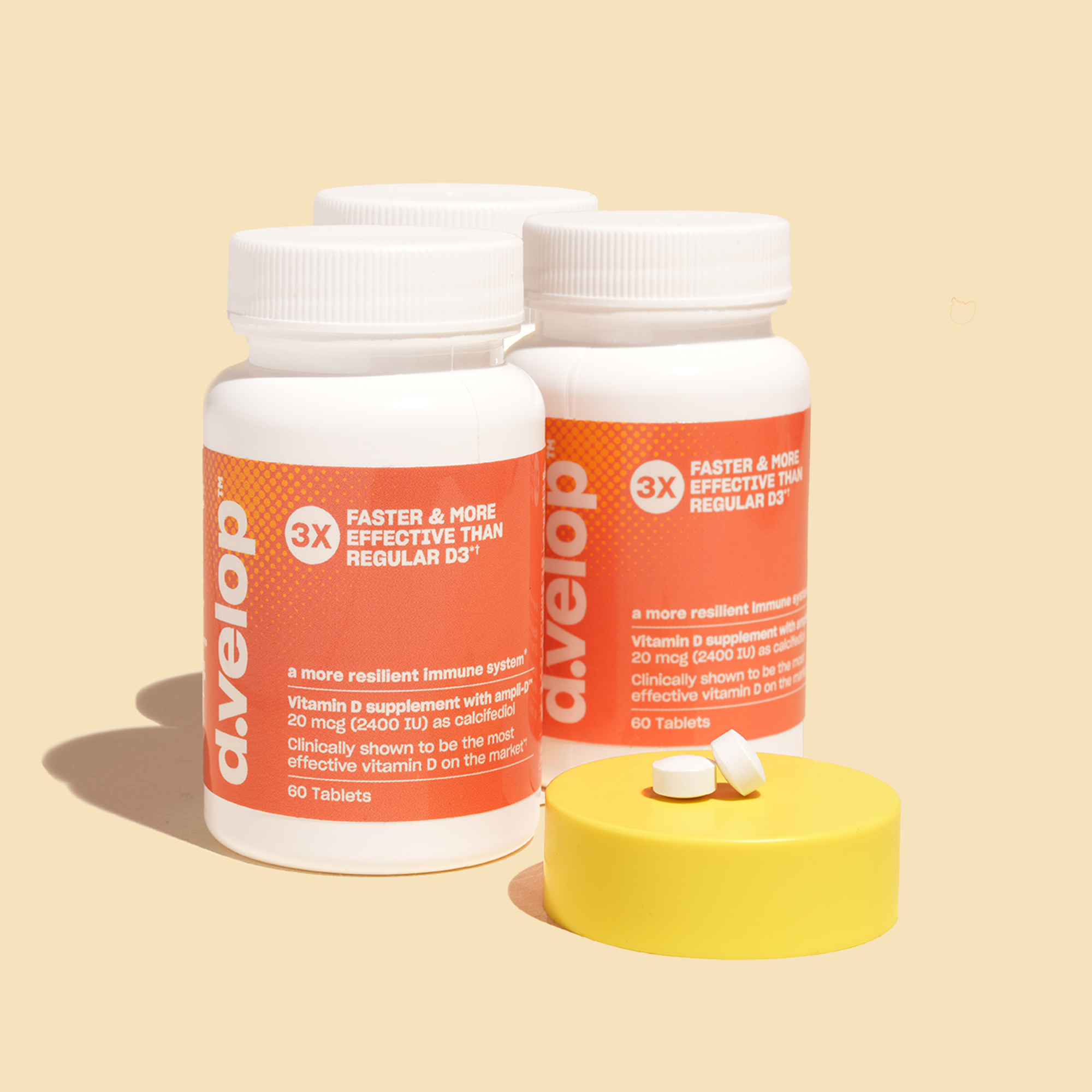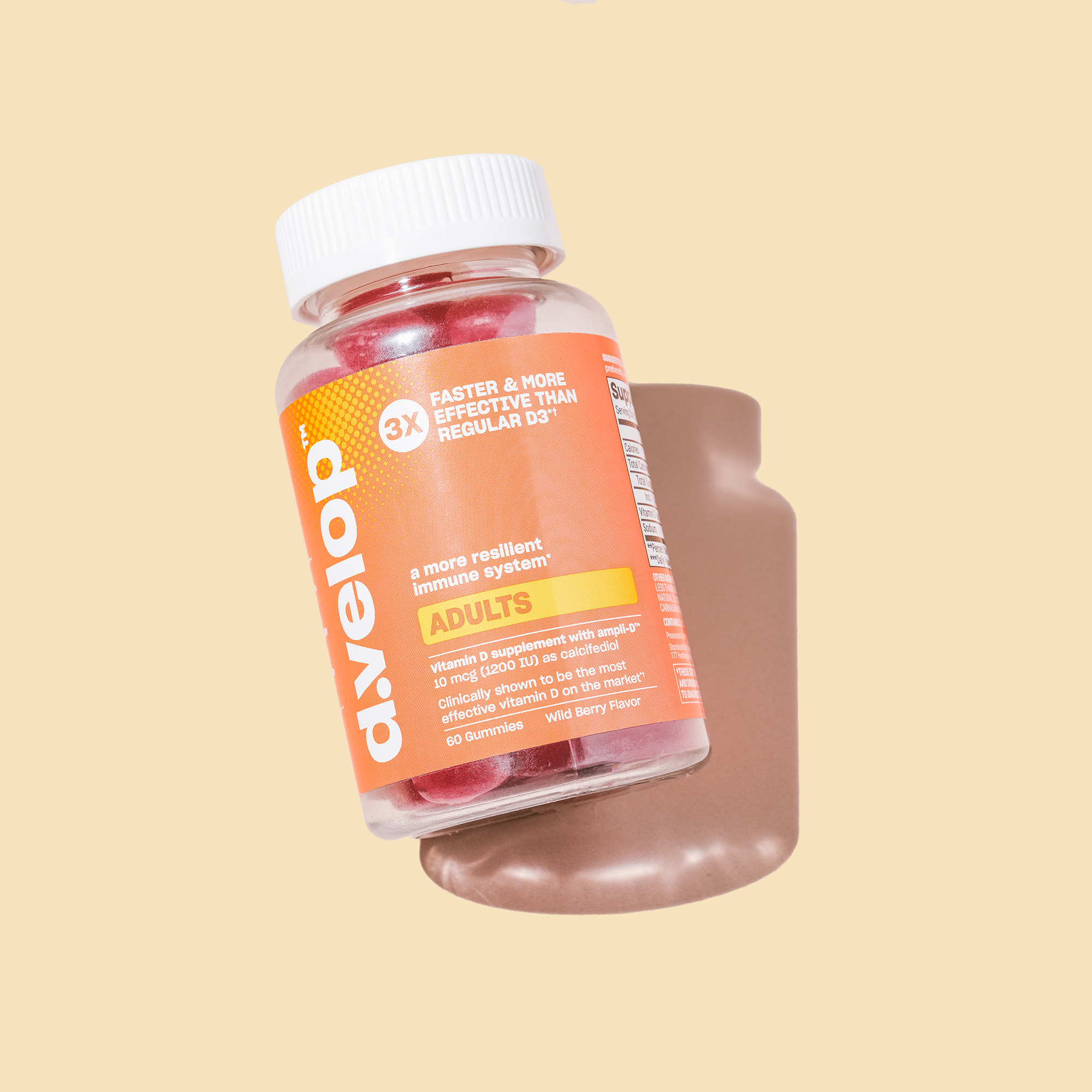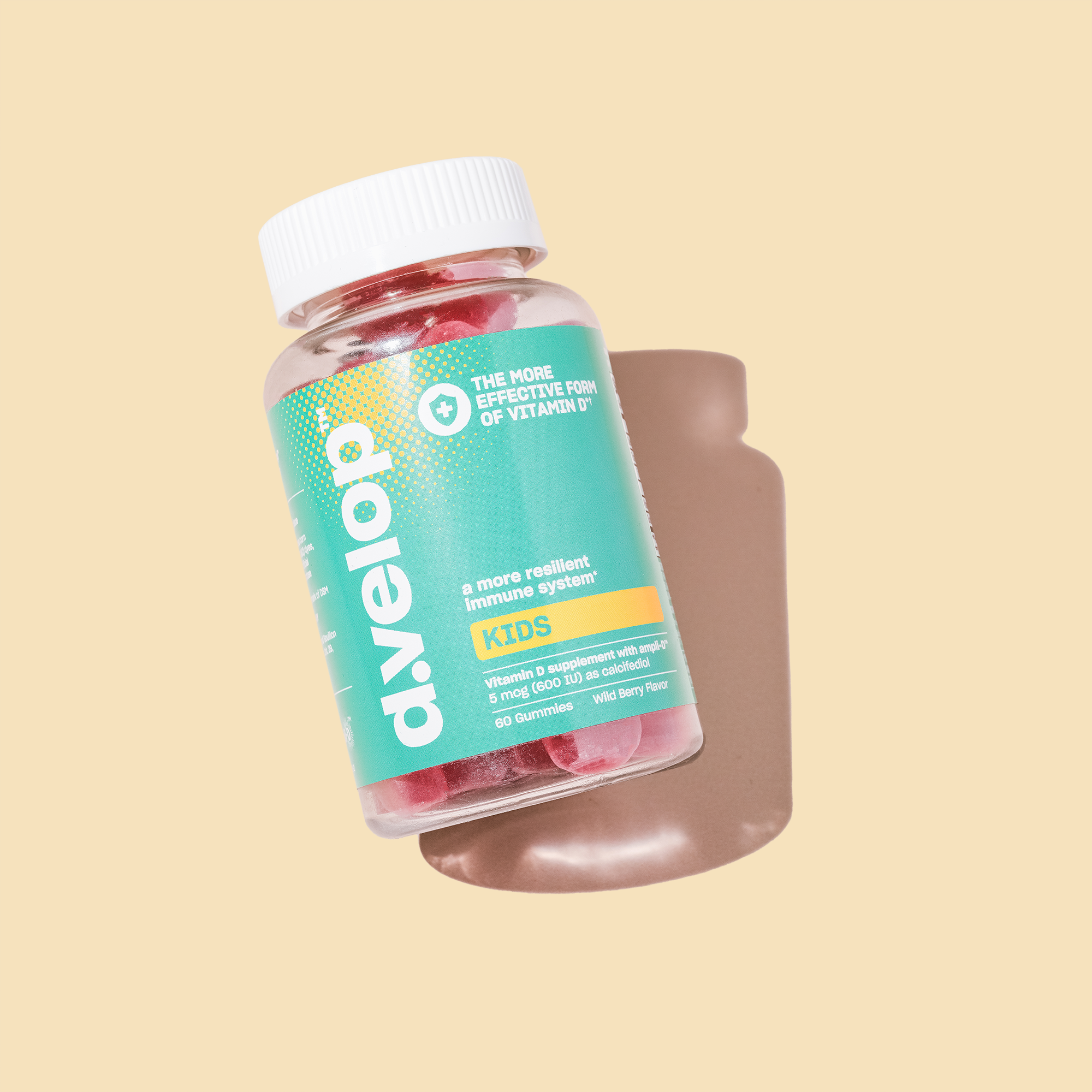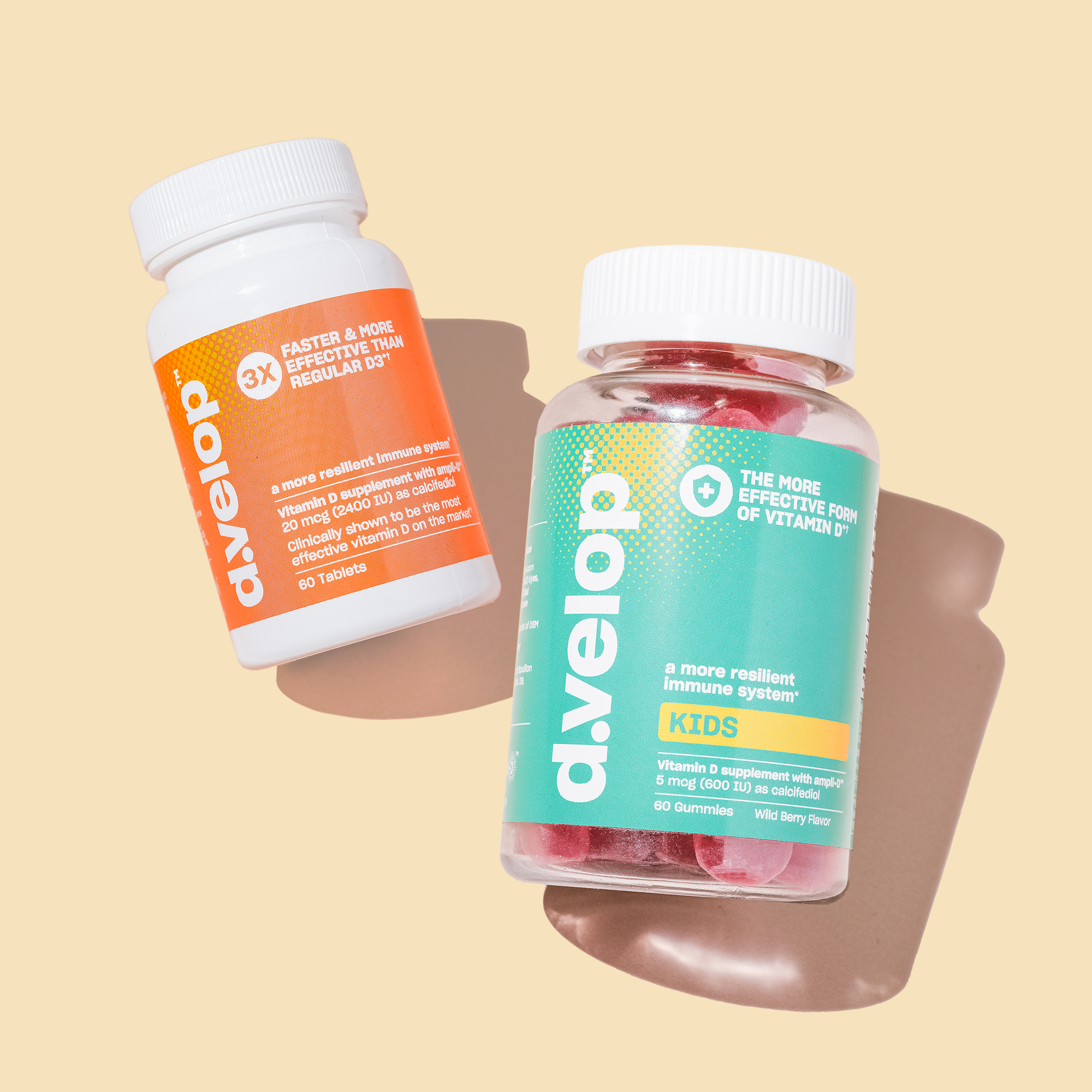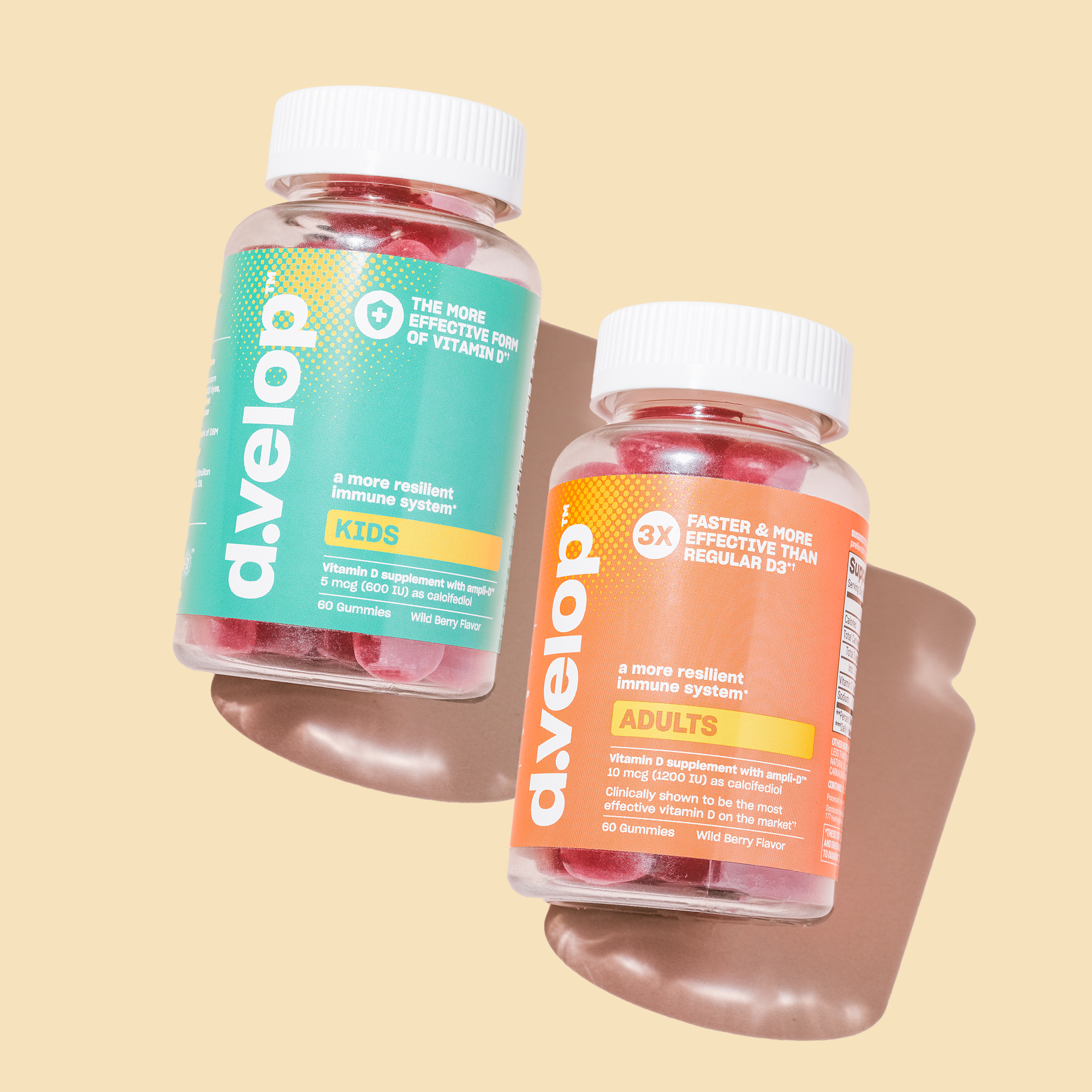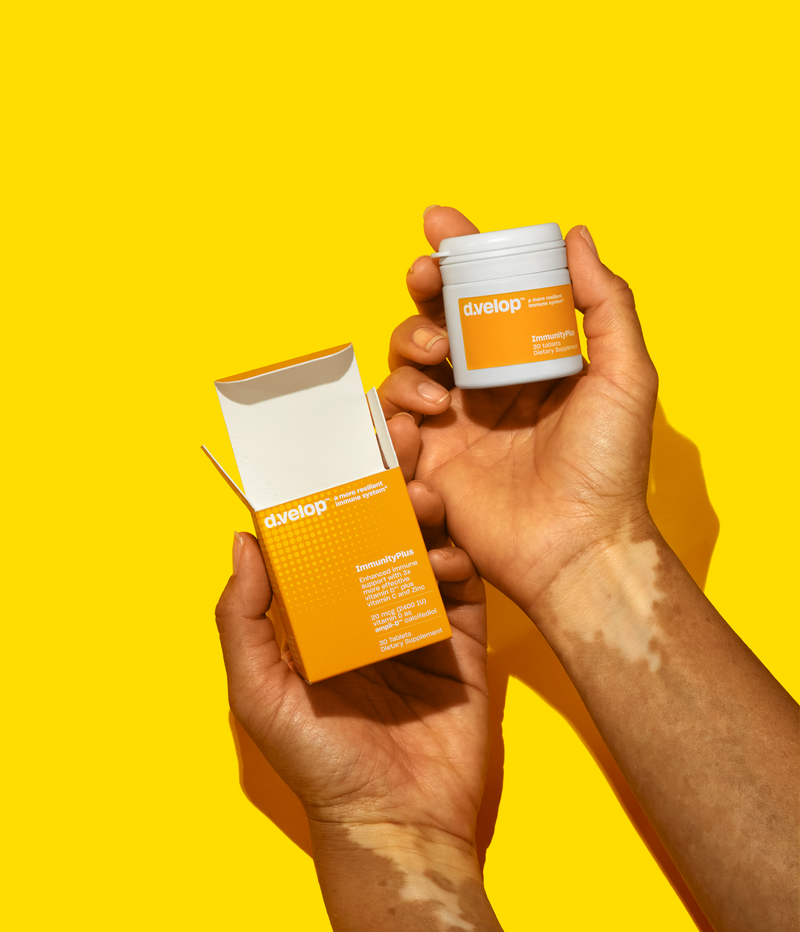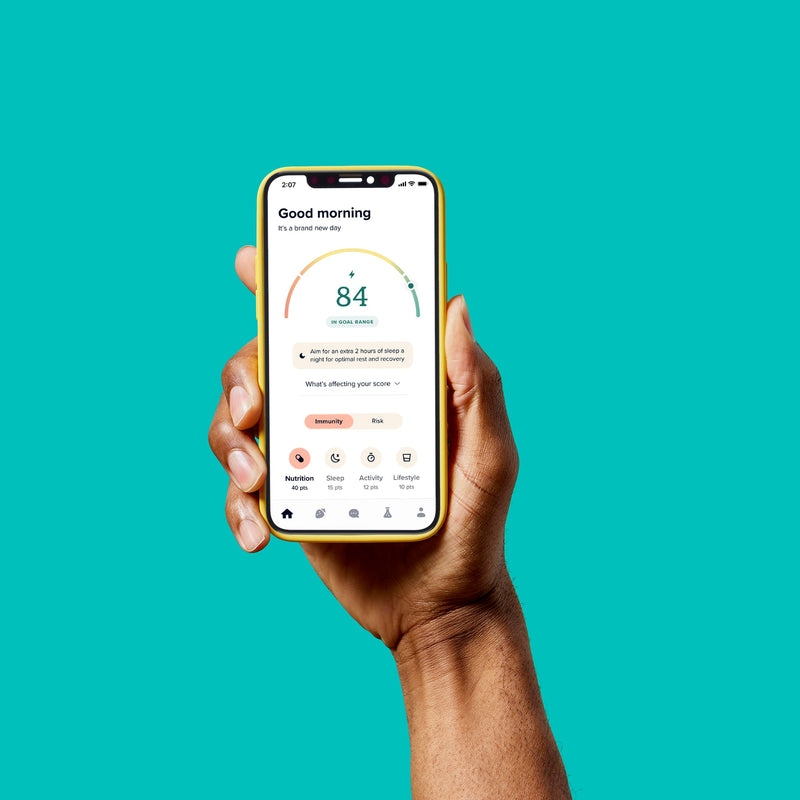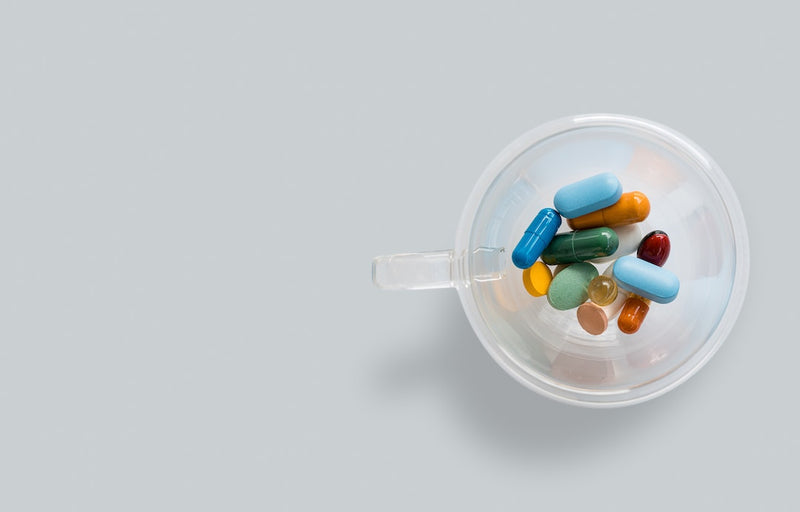Vitamins play a role in every function and process in our bodies. Did you know our bodies can synthesize or make its own vitamins like vitamin D, K, niacin (vitamin B3), and biotin (vitamin B7)? Pretty cool, right? However, the body can only make a small amount, so we need to get most of our vitamins from food or the sun in the case of vitamin D. For a large portion of the population, we don’t get enough certain vitamins through our diet alone (specifically not enough vitamin D, for one) (1).
Dietary supplements are an excellent way to bridge gaps in dietary intake to help ensure that you get what your body needs*. For those who would be more compliant with something that tastes better or don’t like swallowing pills, gummy vitamins can be an excellent choice!
Why choose a gummy vitamin?
Gummy vitamins are a great choice for anyone who has trouble remembering to take a vitamin every day or if you don’t like swallowing pills. Because most gummies taste delicious and easy to chew, you are more likely to remember and even look forward to taking these flavorful supplements each day.
If you have a sensitive stomach, gummy vitamins might be a better option since you may be more likely to experience nausea if you take traditional tablet/pill vitamins on an empty stomach. Those who suffer from reflux, peptic ulcers, gastritis, and IBS may be more prone to stomach upset when taking a vitamin, especially vitamins that contain calcium, vitamin c, or iron (2). Gummy vitamins tend to be easier on your stomach than most traditional vitamins and begin digesting when you place them in your mouth.
But do gummy vitamins work?
Gummy vitamins do work! They provide vitamins and minerals that our bodies need, and we may have a tough time getting through our diet alone.* You might have heard that gummy vitamins do not work as well as other tablet or capsule forms of supplements - is this true? Not quite…They can be as effective as a capsule or tablet.
Research has shown that gummy vitamins are equally or more bioavailable (ability to be absorbed by the body) than traditional forms of vitamins (3,4). And for any dietary supplement, a best practice is for companies to complete third-party testing to ensure the supplement contains the amounts of the active ingredients claimed on the labels for their shelf-life. Rest assured, d.velop™ vitamin D products are produced under FDA GMP (Good Manufacturing Practice) standards and are third-party tested.
Gummies are filled with sugar and dyes, right?
When choosing a gummy vitamin, it’s important to read over the nutrition label. Many gummy vitamins are high in added sugars, and you want to look for a gummy vitamin that doesn’t have lots of added sugars and preferably no high fructose corn syrup. When looking at the label, keep in mind that the Centers for Disease Control (CDC) recommends keeping your added sugar intake under 10% of your daily calories (2). Keep an eye out for ingredients you may not recognize as added sugars, such as sucrose, dextrose, syrups, honey, and sugars from concentrated fruit or vegetable juices (2).
Another ingredient to look for on the vitamin label is synthetic dyes. These dyes change the colors of the gummy vitamins, and these artificial dyes aren’t hard to miss on the label. Nine artificial dyes may be used, including blue 1, blue 2, citrus red 3, green 3, orange b, red 3, red 40, and yellow 5. Ideally, you want to avoid “artificial” ingredients (3).
Okay, but is it possible to eat too many?
Though gummy supplements taste great, you’ll always want to be sure to read - and stick to - the recommended serving size. Water-soluble vitamins can be excreted in your urine if you take more than you need; however, fat-soluble vitamins, including vitamins A, D, E, and K can build up in your system and result in serious side effects. Depending on the brand, one serving could be one gummy, or it may be four gummies. Look at the serving size on the label to ensure you are taking the gummies as recommended. Always check with your healthcare provider before starting any new dietary supplement.
How do you know which gummy vitamins to choose?
A dietary supplement can be a healthy addition to your daily routine. Before starting a supplement, check with your healthcare provider to understand what is would be best for your health before starting to take one.
Consider your personal routines. Are you more likely to take a gummy vitamin if you need one or a tablet or capsule? There are many options when choosing the supplement that works best for you.
Interested in Vitamin D gummies? Check out our NEW d.velop™Gummy, for ages 18 years and older! Our 3X faster and 3X more effective d.velop™Vitamin D in a delicious raspberry gummy†.
What we love the most about d.velop’s Vitamin D Gummies is what’s NOT in them! These gummies are free of high fructose corn syrup, synthetic (FD&C) dyes, artificial flavors, artificial sweeteners, and lactose. These tasty gummies also only contain 3 grams of sugar. Plus, d.velop™ Vitamin D gummies are the only gummy vitamin D supplements that contain vitamin D in the form of calcifediol.
Author:
Laura Ward, MS, RD, LD, IBCLC
References
- Snetselaar LG, de Jesus JM, DeSilva DM, Stoody EE. Dietary Guidelines for Americans, 2020–2025: Understanding the Scientific Process, Guidelines, and Key Recommendations. Nutr Today. 2021;56(6):287-295. doi:10.1097/NT.0000000000000512
- Six tips to avoid nausea after taking vitamins. Cleveland Clinic. https://health.clevelandclinic.org/get-nauseous-after-taking-vitamins-6-tips-to-make-them-easier-to-stomach/. Published December 29, 2021. Accessed May 11, 2022.
- Wagner CL, Shary JR, Nietert PJ, Wahlquist AE, Ebeling MD, Hollis BW. Bioequivalence Studies of Vitamin D Gummies and Tablets in Healthy Adults: Results of a Cross-Over Study. Nutrients. 2019;11(5):1023. Published 2019 May 7. doi:10.3390/nu11051023
- Evans M, Guthrie N, Zhang HK, Hooper W, Wong A, Ghassemi A. Vitamin C Bioequivalence from Gummy and Caplet Sources in Healthy Adults: A Randomized-Controlled Trial. J Am Coll Nutr. 2020;39(5):422-431. doi:10.1080/07315724.2019.1684398
- Get the facts: Added sugars. Centers for Disease Control and Prevention. https://www.cdc.gov/nutrition/data-statistics/added-sugars.html#:~:text=Americans%20should%20limit%20their%20added%20sugars&text=Americans%202%20years%20and%20older,sugars%20(about%2012%20teaspoons). Published November 28, 2021. Accessed May 11, 2022.
- Barrows JN, Lipman AL, Bailey CJ, Cianci S. Color additives history. Center for Food Safety and Applied Nutrition. https://www.fda.gov/industry/color-additives/color-additives-history. Published November 3, 2017. Accessed May 11, 2022.
